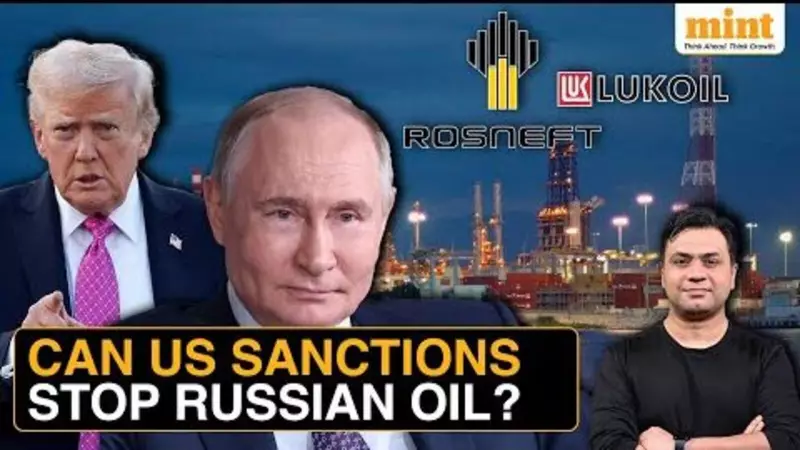
In the high-stakes game of global energy politics, Russian oil has become the ultimate contraband commodity. Despite sweeping Western sanctions, Moscow's crude continues to flow steadily to energy-hungry markets in Asia, particularly India and China. But how does this black gold navigate the complex web of international restrictions?
The Sanctions-Dodging Playbook
Russia has developed a sophisticated system to keep its oil exports moving, employing methods straight out of an economic thriller:
- The Ghost Fleet: Hundreds of aging tankers, often owned by obscure companies with murky ownership structures, form what industry insiders call the 'shadow fleet.' These vessels frequently turn off their transponders, engage in ship-to-ship transfers in international waters, and use circuitous routes to conceal their final destinations.
- Creative Financing: Russian oil trades at significant discounts to international benchmarks, making it irresistible for price-sensitive buyers. Payment mechanisms often bypass traditional banking channels, using alternative currencies and middlemen in jurisdictions less cooperative with Western sanctions.
- The Price Cap Loophole: While the G7's $60-per-barrel price cap aims to limit Russia's oil revenue, enforcement remains challenging. Some traders use falsified documents or blend Russian crude with other oils to obscure its origin and true value.
India & China: The Willing Buyers
For emerging economies like India and China, discounted Russian oil represents an economic opportunity too good to pass up. Both nations have dramatically increased their imports of Russian crude since the invasion of Ukraine, becoming Moscow's most important energy customers.
"The economics are simply too compelling to ignore," explains an energy analyst who requested anonymity. "When you're looking at savings of $15-20 per barrel compared to Middle Eastern crude, the decision becomes purely pragmatic rather than political."
The Global Energy Chessboard
This cat-and-mouse game has fundamentally reshaped global oil flows. Traditional suppliers to Asia have seen their market share erode, while Russian oil now travels much longer distances to reach its customers. The rerouting has created logistical bottlenecks and increased shipping costs, but the price discounts more than compensate.
As Western nations continue to tighten sanctions enforcement, Russia and its trading partners are likely to develop even more creative methods to keep the oil flowing. The shadow economy in energy trade shows no signs of disappearing, proving that in global markets, supply often finds a way to meet demand—regardless of political obstacles.





